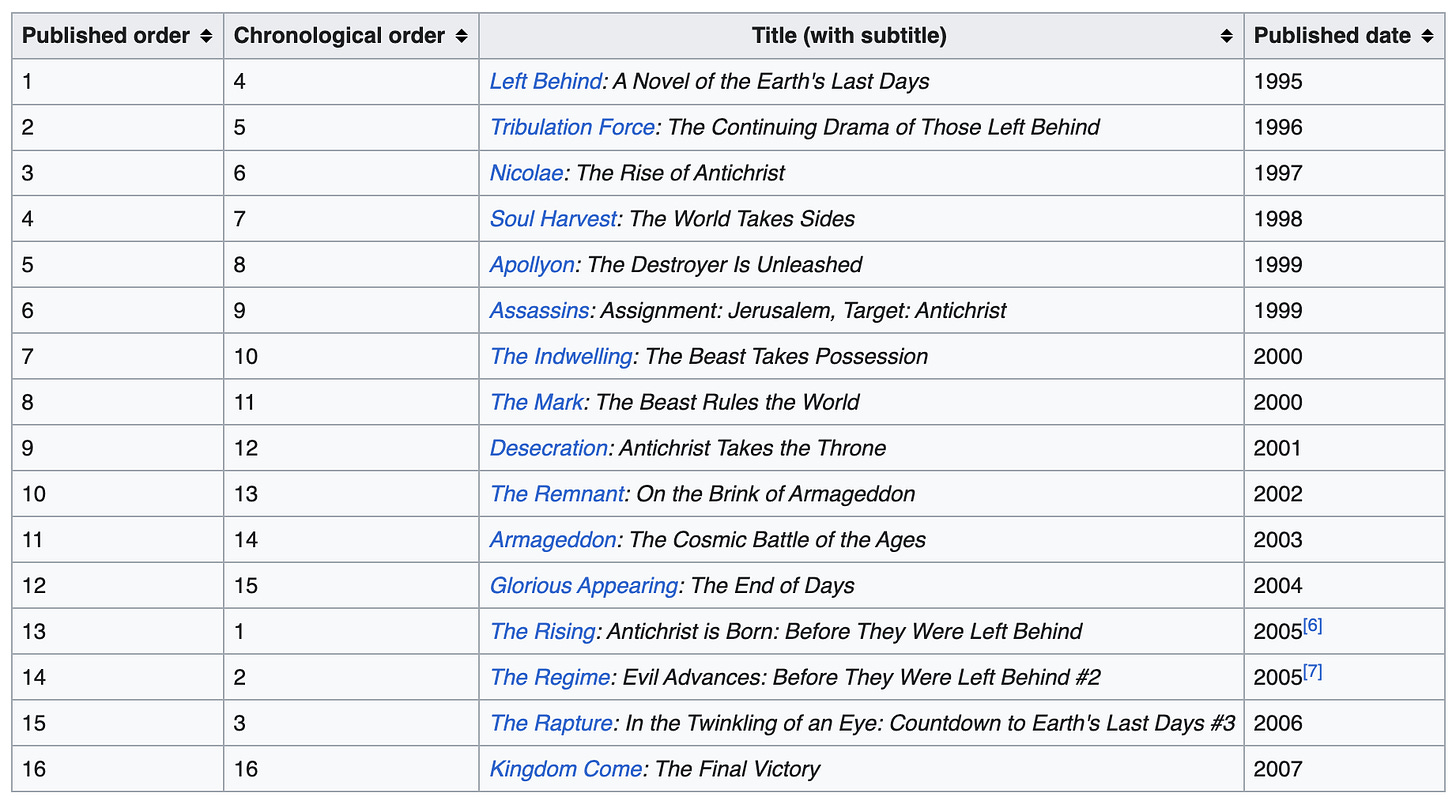How Jesus fulfills all of mankind’s hopes, fixes everything that we broke, and finishes the work Creation started.
“Well, that went downhill quickly.”
If that is your initial thought when reading the Bible starting in Genesis, trust me, you’re not alone. It is a thousand-page book, and everything is broken by page three.
It was off to such a good start, too.
- Genesis 1: God creates everything “very good.”
- Genesis 2: Mankind has the tremendous privilege of filling the earth with more of God’s goodness and love.
- Genesis 3: Mankind listens to one of the beasts they are supposed to reign over and chooses to rebel against God, breaking everything for everyone.
It’s a tragedy and not a very long one.
Or, it would be a tragedy if not for God’s promise while speaking his judgment against the snake, the woman, and the man.
In Genesis 3:15, a verse it is easy to skip over, we see a ray of hope for the future:
“I will put enmity between you and the woman, and between your offspring and her offspring; he shall bruise your head, and you shall bruise his heel.” (ESV)
It’s tempting to read that and interpret it as a vague antagonism between women and snakes or humans and snakes. Except for the last clause: “he shall bruise your head, and you shall bruise his heel.” That is a singular, masculine pronoun.
And that is important. God promises that one day, a man will come along who will gain victory over the serpent. To be sure, the snake would get his blow in and bruise the man’s heel. But the man will bruise the serpent’s head.
The implication is that the man will suffer, but that suffering will not prove ultimately fatal. However, the blow to the snake’s head will lead to his demise.
See? We may merely glance at the statement, but it is essential: God is giving humanity hope! When Adam and Eve heard this promise, they understood that while the serpent’s deception had led them to lose everything, God’s promise would one day restore everything.
As God clothed them in animal skins, they understood that God would make a way for their lives to be redeemed.
Driven from the Garden of Eden, they understood that God would someday grant them safe passage and a return to his presence.
They understood these things because of God’s promise in Genesis 3:15.
How do we know? Because of what follows. In Genesis 4, Adam and Eve’s sons, Cain and Abel, appear. Cain is born first, and Eve’s reaction is telling: “I have gotten a man with the help of the Lord.” (ESV)
Why did it matter that she had gotten a man? Did Eve, a woman, believe that a man was inherently better than a woman? Maybe, though God had created both man and woman in his image. Did she merely rejoice because a man would be more useful in the labor of daily sustenance? Maybe, but not necessarily.
It is far more likely that Eve remembered God’s promise of a future male offspring who would break the curse of sin by triumphing over the deceptive serpent, Satan.
But Cain wasn’t the promised one. Nor was Abel. We know that because of what happens next.
We see them worshipping God by each giving an offering to him. Abel’s offering to God is in line with what God had revealed in Genesis 3 by killing animals and clothing Adam and Eve: a blood sacrifice. Cain’s offering is the fruit of his labor in the fields: vegetation.
Both are worshipping God. Both are making an offering. But God accepts Abel’s offering and not Cain’s. There may not have been anything wrong with Cain’s offering, but we quickly see that something was wrong with his heart.
When God rejects Cain’s offering, it reveals jealousy and rage that drive Cain to kill Abel. God deals with Cain, but we need to see his mother’s response to understand how Adam and Eve understood God’s promise. Genesis 4:25 records Eve’s reaction to the birth of her third son, Seth: “God has appointed for me another offspring instead of Abel, for Cain killed him.” (ESV)
Eve was still looking for the promised “offspring.” She trusted God and knew Abel couldn’t be the promised one because he was now dead, unable to strike the blow to the serpent. And she knew that Cain, though still alive, couldn’t do it either: he had sullied his hands with his brother’s blood and was no longer worthy of spilling the blood of the snake. The promised one would have to be pure, unstained by the serpent’s lies and rebellion against God.
But she had another son, by God’s hand, so she had hope.
But Seth wasn’t the promised one. Nor was his son Enosh. Nor was his grandson Kenan.
But humanity kept looking for the fulfillment of God’s promise. That’s why the genealogies in the Old Testament are there: to help God’s people, those who trusted his promise, in their search for the promised one.
Generation after generation, name after name, there was hope for humanity because God had made a promise. And God always keeps his promises.
Some stand out from others. A descendant of Seth named Lamech thought he had the promised one identified. He said about his son, in Genesis 5:29, “Out of the ground that the Lord has cursed, this one shall bring us relief from our work and from the painful toil of our hands.” (ESV)
That son was Noah. Noah was important, and God used Noah to preserve the human race through the judgment of the flood, but Noah wasn’t the promised one. His deliverance of humanity from sin didn’t last: he fell into drunkenness after the flood.
The promised one would be like Noah in that he would provide sanctuary for all who would take refuge within his protection, but he would have to be better than Noah.
So, the search for the promised one continued. It zoomed in on the land of Ur, on a man named Abram. God called Abram to leave and to move to Canaan. God promised to bless the whole world through Abram and renamed him “Abraham.” But for all his obedience, Abraham struggled with letting God’s promises come about in God’s way: he continually manipulated the situation to try and bring about the promise on his own. So, Abraham wasn’t the promised one, merely one through whom the promised one would come.
The promised one would be like Abraham in that he would do whatever the Lord told him to do, but he would have to be better than Abraham.
At least the scope of the search was narrowing: the promised one would be Abraham’s descendant.
But it turned out not to be Abraham’s son or his grandson.
Years later, however, Abraham’s descendants found themselves enslaved in the land of Egypt. And God called one of them, Moses, to lead them out of slavery and out of Egypt and back to the land of Canaan. But Moses had a problem with his temper: he killed an Egyptian and disobeyed God in leading the people towards Canaan. He wasn’t the promised one.
The promised one would be like Moses in that he would lead God’s people out of captivity, but he would have to be better than Moses.
God’s people enter God’s promised land, but the promised offspring doesn’t appear. The people get into a cycle of ignoring God, falling into the hands of their enemies, repenting, and being rescued by a judge raised by God to save them, only to forget God again as soon as they are safe. Each of these judges had the potential to be the promised one in the eyes of the people. One, Shamgar, killed 600 enemies with no weapon but a wooden ox goad. But his victory didn’t last, and God had to raise another judge after him. So, Shamgar wasn’t the promised one.
The promised one would be like Shamgar in that he, too, would use an instrument of wood to conquer his enemies, but he would have to be better than Shamgar.
Eventually, God’s people grew tired of the never-ending cycle with the judges. They asked God to give them a king. God warned them that they wouldn’t like it, but they insisted. The first king, Saul, didn’t work out very well, but the second king was promising. His name was David, and the Bible tells us he was “a man after God’s own heart.” Surely, he was the promised one. Unfortunately, he wasn’t. David failed to keep himself pure, committing adultery with a friend’s wife and then arranging to have that friend killed. David wasn’t the promised one.
The promised one would be like David in that he would indeed be a man after God’s heart, but he would have to be better than David.
And on and on. God’s people, those still clinging to his promise of the coming one who would be God’s man, grew weary of watching and waiting. Waiting for a hundred years was a long time, but thousands were passing. Every time a potential promised one appeared, he failed.
It was becoming clear: no one was good enough. The best and the brightest of humanity had tried and failed. If God were to keep His promise, He would have to do something remarkably different than what people had seen before.
One group of God’s people realized this quite clearly. The Sons of Korah were servants of God and helped to write some of the Psalms that we find in the Bible. These were worship songs sung by God’s people as they praised and trusted him. In Psalm 49, the Sons of Korah realize something significant: the promised one couldn’t just be a man. In verses 7-9 of that Psalm, they write, “Truly no man can ransom another, or give to God the price of his life, for the ransom of their life is costly and can never suffice, that he should live on forever and never see the pit.” (ESV)
The Sons of Korah looked at this dismal record of failed promised ones and recognized something vital: a mere man wouldn’t be enough to fulfill the promise. To ransom humanity from their enslavement to evil, the promised one would have to be someone who wasn’t under the curse, who wasn’t bound by the lies of the Father of Lies, Satan, that old serpent.
But to fulfill God’s promise, the promised one still had to be the woman’s offspring. In other words, he couldn’t be merely human, but he had to be still human.
The Sons of Korah suggest a solution, whether they recognized it or not, in verse 15 of Psalm 49: “But God will ransom my soul from the power of Sheol, for he will receive me.” (ESV)
They recognized that a mere man could not ransom another man, but they rightly discerned that only God could and would be able to ransom them.
God knew that, too. All the “failures” that happened along the way weren’t God’s: he allowed the hope to build and his people to look expectantly at each new candidate. People may have been surprised by the failures, but God wasn’t. God wasn’t crossing his fingers as David was eyeing Bathsheba, thinking, “Man, I hope he doesn’t do it!” God wasn’t biting his fingernails as Moses stood before the people at the rock, whispering, “Please, oh please, don’t hit the rock!” Their failures aren’t God’s failures. God knew they weren’t the promised one; he knew they weren’t good enough. But he was preparing us for the one who would be. He was preparing us for the GodMan.
See, God could fulfill His promise only if the promised man were also God.
Many missed it, but that’s what eventually happened.
After thousands of years of delayed hope, of waiting and watching kings, prophets, and judges, of praying for the promised one, God sent his promised one.
He was a man born to a young peasant girl named Mary. His birth was just the same as every other human’s: messy. His first breath was like every other human’s: a prelude to a newborn’s squall. He grew. He learned. He got hungry, and he ate. He got thirsty, and he drank. He got tired, and he slept. He was human, an offspring of the woman.
He was also God. In the beginning, he was with God, and he was God. Before Abraham was, he is. He is the creator and sustainer of all things. He is the first and the last, the Alpha and Omega. He receives worship as God and does not correct the worshippers. He is God, able to ransom us from sin and death.
God’s man is the GodMan.
Jesus Christ is the only name given among men by which we may be saved because he is the only offspring of the woman who is also the one who created the woman.
Jesus Christ is 100% God and 100% man to finally fulfill the promise of God and reconcile humanity to himself.
Jesus Christ was the only one who could fulfill Genesis 3:15. He was wounded by the serpent and died on the cross. But he struck the serpent’s head by rising through the power of his divine perfection.
Jesus Christ opened a way for humanity to return to the presence of God, not by setting an excellent example for us, but by bringing the presence of God to us and taking the punishment we deserved.
Time and time again, we fail. But the GodMan, Jesus Christ, invites us to put our trust in Him, His incarnation, His life, death, burial, and resurrection.
And He will return one day and rebuild a new heavens and new earth where He and His people will reign and rest forever.
That’s how Jesus finally fulfills all of mankind’s hopes, fixes everything that we broke, and finishes the work Creation started.
Do you want in?










